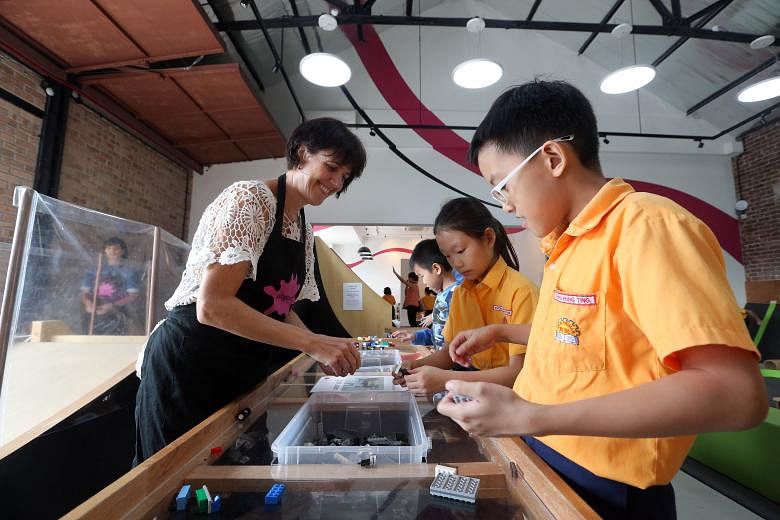At Playeum, a non-profit group that advocates more play for children, we are often asked about the importance of play, and if there are tangible benefits for every child through "just playing".
The answers have been evident for decades, and they are all positive.
Yes, play is hugely important for the healthy mental and physical development of children throughout their childhood, not just in the early years. And yes, play can benefit children in ways that we can all see and understand.
These include children growing in self-confidence as learners, focusing for longer periods when undertaking tasks, and speaking more fluently and expressively.
A key outcome of play is coming to understand - consciously or not - that failure is not the last word. If surmounted, it can become a critical part of the learning process, leading to experimentation and innovation - core components of creativity.
These are outcomes that have been recognised by leading educationalists, scientists and economists as essential for the future well-being of the planet and for humanity.
It seems dramatic, but the same conclusion keeps being reached: We need a generation of creative thinkers and doers to survive into the next century and beyond.
So, what is play? Researchers have categorised it into five types: physical play, play with objects, symbolic play, pretence play and games with rules. The importance of accepting and building on "failure" applies to all of these types.
A particularly compelling piece of research involving play with objects was carried out in the 1970s. It helped to illustrate how play can influence children's attitudes towards "failure" positively and make them more resilient learners.
In the study led by American psychologist Jerome Bruner, two groups of young children were set the task of retrieving an item using a rod and lure. The rod, lure and hook were made up of several separate components. Along with G-clamp fixings, the children needed to put these together successfully to retrieve the object.
One group of children was given a demonstration on how to do the task before being asked to do it themselves. The other group was given the opportunity to play open-endedly with the components before they undertook the task.
The results were significant. Both groups performed similarly, with the same proportion of children succeeding the first time around.
However, the children who did not succeed in the group that had received the demonstration gave up the task immediately.
The children in the group that had been given a chance to play with the components persevered to succeed a second or third time, coming up with new ways of putting the components together until they had completed the task.
Subsequent, extensive research has backed up these findings, where it is clear that there is a link between play-based exploration and levels of perseverance. Children also display more familiarity and confidence in the "tools" of a task if they have had the opportunity to explore them first in an open-ended context.
Further research, carried out in the 1980s by creativity researcher George Land, revealed that children are "genius-level divergent thinkers". That is, children have a far greater capacity than adults to consider multiple responses to a problem, and these responses are highly imaginative and unconstrained.
Society still needs to recognise the implications. Surely, offering open-ended, play-based learning opportunities to such genius-level divergent thinkers would lead to exceptional outcomes.
Both of these findings, which have been known for more than 30 years, should arguably have a significant impact on formal education systems.
Delivering information to children as though they were empty vessels needing to be filled diminishes creative opportunities for all children. Evidence has shown that exploratory play nurtures children with raised levels of confidence and capabilities, who have the maturity to persevere with the learning process.
How many parents reading this now would like their child to have these qualities?
If you are one of them, my advice to you is: Let your child play.
• The writer is the executive director of Playeum. She previously served as associate director of programming at the ArtScience Museum. She is married with two children aged seven and four.

